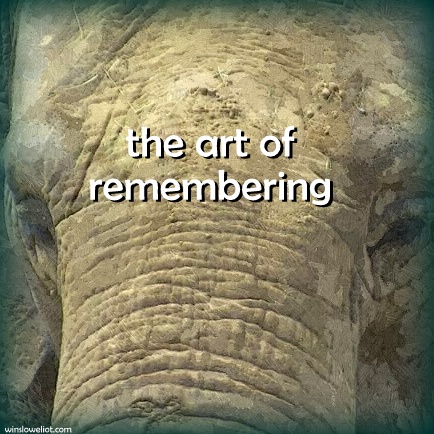
Why do we remember one moment from long ago, but not the moment just before or after? What is it like not to have a sharp memory—does this make us more present-oriented? Or are we always thinking about the future if we can’t remember the past? My memory, which I inherited from my father and his ancestors, is razor sharp. It pierces. Sometimes I think I remember every day, every look, every word, every breath from the moment I was born. That’s not true, of course, but if someone reminds me of something, it floods through me like a big fat wave and drenches me. A strong memory is neither a good nor a bad thing to have, or you could say it’s both. For instance, it’s hard to watch a movie more than once because I pretty much remember every detail and quickly can get bored. And when I re-read my favorite books it’s as though I’m reciting them to myself. On the other hand, memorizing poems has always been easy for me and I like that. But in terms of trauma, suffering, injury it’s not so good. The hurts, the slights, the slings and arrows are wedged into my psyche like splinters. The times I hurt someone or something without intending to, but still … I did. I feel terrible. There’s no absolution if you have a good memory. There’s no way to let it go and be free. It’s hard to forgive yourself. But I’ve found there’s another way to live with the aches and pains of memory, and that’s to rewrite the story. To frame it in a different way. To be more artistic about it, more creative. Not to change the event, but to change our memory of it. What really went on? When I practice this, other memories rise up, sometimes of the day before or after. A stranger on a bus. Riding a horse through the English countryside. Enormous tenderness for a dog. What really happened was not only the story that our memory feeds us, but our response to it, our revisions, edits, sketches, compilations, and who we are when we finish that chapter and turn the page.
